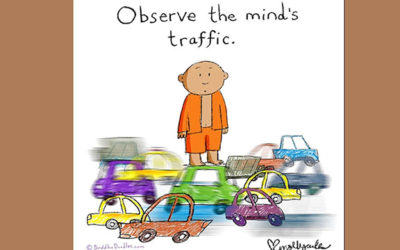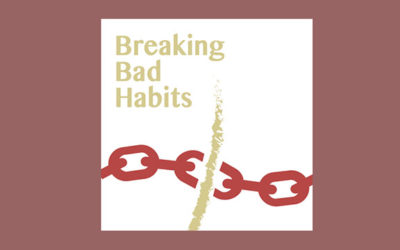Durga Leela is the founder of Yoga of Recovery, a comprehensive program that integrates Ayurveda and Yoga with recovery tools for a holistic mind, body, and spirit. In this podcast, Avi Gordon (director of the Integral Yoga Teachers Association) talks with her about...
Compassion During Crisis
On June 21st, we celebrate the annual International Day of Yoga. In honor of this day, we are publishing this inspiring essay by Sharon Gannon (cofounder of Jivamukti Yoga and spiritual activist) that reveals the heart and soul of what Yoga is all about. yam hi na...
Anger as a Tool for Change
If you need to correct somebody’s behavior, to get them to stop some negative action, you may have to use anger. By doing that, you are “punishing” their mistakes, but you are not punishing the person. You are not hating them. It’s like the child in a classroom, who...
Pandemic Panic: The Science of our Fear Response
I've found myself feeling weird amid the COVID-19 crisis. I use this vague and understated label “weird” because I’ve yet to find a more specific adjective to properly encompass what’s happening internally. As a yogi, I’m supposed to be all zen during a crisis, right?...
How to Analyze Your Anger
When anger arises, the mind becomes deluded. The Bhagavad Gita has two beautiful slokas about this: From brooding on sense objects, attachment to them arises. Out of that attachment, personal desire is born. And from desire, anger appears. Anger confuses the thinking...
In the World, but Not of the World
You can be in the world but do not be of the world. Then, you are free. The mind has to be in the world and that is why we try to have a detached outlook. Of course, this is very difficult to achieve. And, many people misunderstand the idea of detachment. They might...
Seven Spiritual Practices to Reduce Seasonal Affective Disorder
Summer in the Northern Hemisphere is over, which means the days will soon get darker and our energy will start to plummet. The thing is, it doesn’t necessarily have to go that way yet again this winter. We may be able to salvage some of that summer feeling through...
Recovering Natural Joy
Many of us think of joy as an experience we have when something special happens. We may plan specific activities, such as a vacation, some entertainment or dining out, that we think will bring us joy. This thinking is so prevalent in our culture that we don’t realize...
Your Mind: Learn to Just Watch the Show
Someone asked me the following: "Sometimes I see visions of departed souls. I don’t understand this. Can you explain it?” Yes, the mind can do anything. It creates images and can foresee things. The mental capacity for that is there. Recently, I read some articles...
What is the One Thing We All Want?
Some people love to travel. If you ask, “Why do you want to travel?" they may say, “To see a lot of places.” “So if you see a lot of places, what will happen?” “Well, I’ll be happy.” “If you ask the travel agent, why are you making all those arrangements for them to...
How to Change an Unhelpful Habit
We have a lot of desires, a lot of selfishness. Yet, we also understand, that if we become selfless, we become happy. You might ask, “What can I do if I can’t get rid of my unyogic desires?” You have to analyze your motives. Over what actions are you selfish? And by...
For Anyone Contemplating Suicide—Choosing Life: Suicide Prevention & Hope / Advice from Swami Satchidananda
A message from Lifeline: The National Suicide Prevention Lifeline: We can all help prevent suicide. The Lifeline provides 24/7, free and confidential support for people in distress, prevention and crisis resources for you or your loved ones, and best practices for...
New Study: Yoga and Mindfulness May Help Elementary School Students Manage Stress, Anxiety
Yoga/mindfulness activities may facilitate stress management among elementary school students and may be added as a complement to social and emotional learning activities, according to a Tulane University study. Published 2018, in Psychology Research and Behavior...
Teaching Kids to Cope with Emotions Through Yoga
“Yoga allows us to bring an expanded consciousness of loving, living, and healing to our every day activities, starting from the inside out. A rainbow of practices was developed to help us make that journey. Included in that rainbow is the knowledge that we are the...
Pranayama (Yoga Breathing) for Physical and Mental Health
Question: Can pranayama really help one’s physical and mental health? Swami Satchidananda: First of all, pranayama helps you to live! It helps you lead a full life. What you are living is not a complete life. You are only living 1/7th of your capacity but with...
Q & A with Swami Satchidananda: How to Overcome Powerlessness
Question: How can I overcome a feeling of powerlessness and change my life? Swami Satchidananda: Put in some power! The reason you feel powerless is because there‘s not enough vital energy in you. Pranayama practice will fill you with more vital energy. And, you can...















